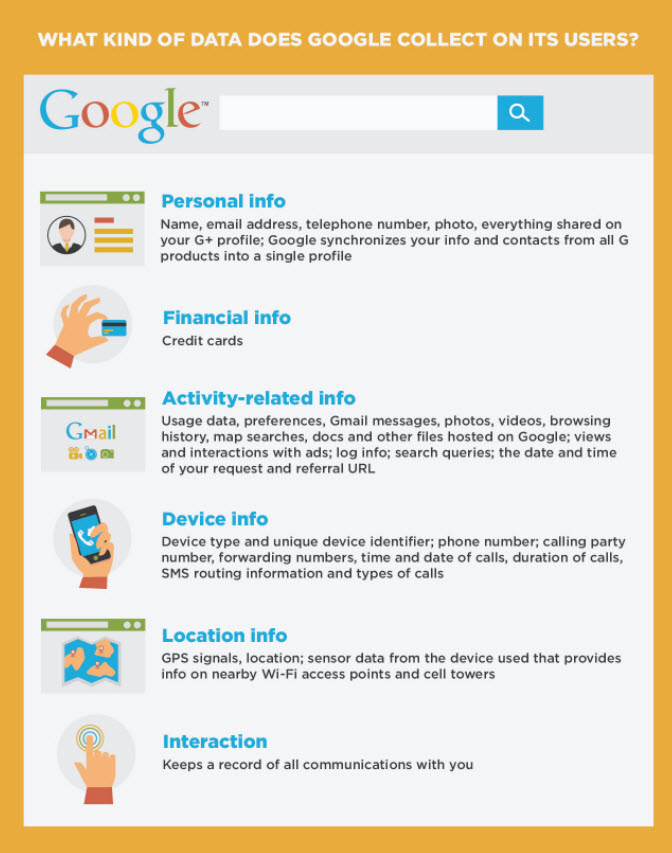Duckduckgo vs. Google – A Choice of Privacy

Search engines are the gatekeepers to the world knowledge shared on the web. We are so used to relying on search engines’ “recommendations” when browsing online that we tend to rarely question the algorithms they use to compile those lists of results. But taking for granted a service that you “feed and breed on” is a risky path to take.
There are two distinct types of search engines that we are to cover today. On one hand, we have search engines that offer the so-called personalized search service. They filter their search results to a custom version that varies depending on the given user profile. On the other, we have search engines that respect their users’ privacy and offer them uniform results.
The Personalized Search
The best example of a search engine offering personalized search results is also the undisputed leader in the search engine industry: Google. There is hardly an online user out there that hasn’t used Google, and there is practically a handful of countries where Google does not dominate the search engine market (countries like South Korea, China, Russia and the Czech Republic have national search engines).
What is personalized search?
The process of personalization before anything else requires having in-depth knowledge of the active online users. In order to profile them correctly Google has to access some private information by tracking, recording, and keeping on file the online activities, preferences, and information shared, read, and commented on by its users.
In the image below you can look up the majority of data that Google collects on its users including: personal, financial, activity-related, device, location and interaction info.
Once Google has managed to assess a given user’s “character” it compiles a custom set of results for each of his queries. The uniqueness of the results and their relevance to the user’s interests, search history and location are prime characteristics of the personalized search.
What are the benefits of personalized search?
Personalized search saves time.
Google, as a personalized search engine, tries to render results that you’d definitely like. This includes not only presenting you with info sources that you prefer but with topics and opinions that you have already shown interest in.
So instead of you hunting down valuable info online, Google is trying to make sense of what you define as “valuable” and conduct the search for you. It interprets the particular context you are aiming as well as which sites would best address your query. It places the best options on top of its search results and voila: you have your own custom bookshelf in the WorldWideWeb library.
What are the threats of personalized search?
The personalized search puts you into an informational filter bubble.
With personalized search your information horizon is limited to a few sites and topics that the search engine “knows” you like and you’d never get a chance to see/read an alternative point of view. This filter bubble could make you prejudiced without you can even realizing it. Reading what you like could be fun but it will only separate you from the real world, it will dull your senses and limit your knowledge.
In the image below you can see a brief privacy comparison between the personalized search engine Google and the privacy-oriented DuckDuckGo:
The Private Search
With the growing privacy awareness of the today online user considering an alternative search engine becomes more and more popular of a trend. Below you can see the general predispositions of the online user towards issues like online privacy, sensitive data collection and its distribution to third parties as well as falling a victim to targeted ads as a result of the detailed search engine profiling.
But what does private search actually stand for?
Simply put the private search engines don’t track or “investigate” your persona. There is no profiling process involved in your interaction with them.
When a user types a search query, he gets uniform results that would be rendered to each and every other online users that have used the same search phrase. The users might be living in different continents, they could be farmers or Street brokers: regardless of their interests and location as long as they use the same search query, they will have access to the same search results.
What are the benefits of the private search?
The advantages of not having your personal data collected are pretty obvious, you won’t get targeted ads following you all around the web; government won’t be able to obtain your location, your content sharing, commenting, posting and reading activities.
With private search engines, you face the opportunity of not leaving a footprint while browsing online.
What are the threats of the private search?
The core benefit of private search engines like DuckDuckGo is often considered by some to be its main disadvantage. Unfortunately, many people are used to personalized search results and do not even suspect what kind of price they pay for this “custom” service. They see private search engines as crippled service providers because they fail to “digest” the information according to their specific tastes.
But let’s see the concerns online users face both with Google (a personalized search engine) and DuckDuckGo (a private search engine).
The #1 keyword research tool
Give it a try or talk to our marketing team — don’t worry, it’s free!











